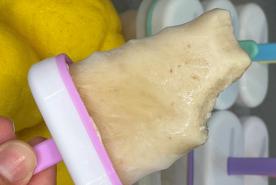February 25, 2016
Potassium is an important nutrient that helps keep your heart healthy and your muscles working right. But too much potassium can be dangerous, especially if you have kidney disease. There are steps you can take to keep your potassium levels safe. Here’s what you need to know.
Everyone needs potassium. It is an important nutrient that helps keep your heart healthy and your muscles working right. But did you know that too much potassium can be dangerous, especially if you have kidney disease? The good news? There are steps you can take to help keep your potassium levels within normal range.
Who Is at Risk?
Although your body needs potassium, having too much in your blood can be harmful. It can lead to serious heart problems. Having too much potassium in your body is called hyperkalemia.
You may be at risk for hyperkalemia if you:
- Have kidney disease: It is the job of your kidneys to keep the right amount of potassium in your body. If there is too much, healthy kidneys will filter out the extra potassium, and remove it from your body through urine. However, when kidneys do not work well, they may not be able to remove enough potassium. This means that potassium can build up in your blood to harmful levels.
- Eat a diet high in potassium: Eating too much food that is high in potassium can exacerbate or cause hyperkalemia, especially in people with advanced kidney disease. Learn how to incorporate high-potassium foods into a low-potassium diet.
- Take certain drugs: Some drugs can keep your kidneys from removing enough potassium. This can cause your potassium levels to rise. Discuss all medicines that you take with your doctor. Do not stop taking any medicine on your own.
- Have Addison’s disease: This can occur if your body does not make enough of certain hormones. Hormones are chemicals produced by different glands and organs, including the kidneys, to trigger certain responses in your body.
- Have poorly controlled diabetes.
- Experience a serious injury or severe burn.
Join the NKF Blog Newsletter
Get inspirational stories and kidney disease resources delivered to your inbox every month. You'll gain practical insights and expert advice to help you better understand and manage your kidney health no matter where you are on your kidney journey. Subscribe today.
How Do I Know if I Have High Potassium?
A simple blood test can find the level of potassium in your blood. If you are at risk, be sure you ask your healthcare provider about a blood test for potassium.
Many people with high potassium have few, if any, symptoms. If symptoms do appear, they are usually mild and non-specific.
You may feel:
- Muscle weakness
- Numbness,
- Tingling,
- Nausea
- Other unusual feelings.
High potassium usually develops slowly over many weeks or months. It is often mild but can recur.
If high potassium happens suddenly and you have very high levels, you may feel heart palpitations, shortness of breath, chest pain, nausea, or vomiting. This is a life-threatening condition that requires immediate medical care. If you have these symptoms, call 911 or go to the emergency room.
There Are Options
That’s the good news! If you have high potassium or are at risk of getting it speak to your doctor about the various options you have to manage your potassium levels. Tell your doctor about all the medicines you are taking including over-the-counter drugs, herbals and supplements.
To help keep your potassium levels within normal range, a doctor may recommend you:
- Watch how much potassium you eat: Eating too much food that is high in potassium can cause problems in some people, especially in people with kidney disease. Ask your healthcare provider or dietitian how much potassium is right for you. Eating too much can be harmful, but having too little can cause problems, too. Some people may need a little more; others may need less. Get a list of 40-low-potassium fruits and vegetables.
- Avoid certain salt substitutes: Certain salt substitutes contain potassium chloride.
- Avoid herbal remedies or supplements: In general, people with kidney disease should not take herbal supplements. They may have ingredients that can raise potassium levels. If you have any questions about them, ask your healthcare provider.
- Take water pills (diuretics) or potassium binders as directed by your healthcare provider: Water pills (diuretics) help rid your body of extra potassium. They work by making your kidney create more urine. Potassium is normally removed through urine. Potassium binders “bind” to the extra potassium in the bowels and remove it.
- Get regular check-ups: Frequent blood testing will help you keep track of your potassium levels.
- Follow your treatment plan: Following your treatment plan will help you keep your potassium levels in the healthy range.
Read advice from others living with high potassium.
This article was sponsored and developed in collaboration with Relypsa, Inc.


















